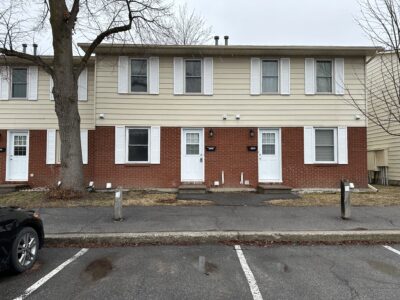Navigating the world of property management can be daunting for many investors. Concerns surrounding tenants who might default on rent or cause damage to the property without any recourse can be worrisome. Especially now, with the Landlord and Tenant Board (LTB) experiencing unprecedented wait times, the importance of managing tenant relationships and rent collection effectively cannot be overstated. However, the key to successful property management isn’t just about enforcing rules; it’s also about the mindset you adopt and the personal relationships you cultivate with your tenants.
The Foundation: Legal Contracts and Firm Boundaries
At its core, property management is governed by the lease agreement—a legal contract that outlines the obligations and rights of both the landlord and the tenant. This document is black and white, stipulating, among other things, that rent is due on the first of the month. If this obligation is not met, it’s crucial that the property manager takes the appropriate steps, including filing the necessary paperwork for late payment.
I often encounter investors who find themselves 60 to 90 days into a situation where the tenant has stopped paying rent, unsure of what to do next. When I inquire why they haven’t initiated the formal process, the responses usually revolve around personal relationships: the tenant has been there a long time, they’ve always made up for late payments in the past, or a sense of trust was developed over time. This highlights a common dilemma in property management—the balancing act between professional obligations and personal relationships.
The Importance of Setting Expectations Early
The cornerstone of effective tenant management is setting clear expectations from the outset. If the procedure for late payments is established and adhered to consistently from the beginning, it becomes a norm. This approach not only ensures that you are prepared to move to the next step in the eviction process if necessary but also sends a clear message to the tenant about the seriousness of their obligations.
Personal Relationships: A Double-Edged Sword
While building personal relationships with tenants can have many benefits, including fostering a positive living environment and encouraging tenants to take better care of the property, it can also complicate the enforcement of lease terms. The reality is harsh but simple: when a tenant faces financial difficulties, the personal relationship with their landlord is often the first thing to be sacrificed to protect their housing situation.
Navigating the Delicate Balance
The art of property management lies in navigating the delicate balance between maintaining professional boundaries and cultivating personal relationships. It’s possible to be a compassionate and understanding landlord while still ensuring that the terms of the lease are respected. Communication is key—being open and honest with tenants about your expectations and the realities of property management can help build mutual respect and understanding.
Final Thoughts
Personal relationships with tenants are an integral part of property management but should never come at the expense of professional responsibilities. By setting clear expectations, adhering to the terms of the lease, and maintaining open lines of communication, property managers can build positive relationships with their tenants while safeguarding their investments and ensuring a smooth operational process. Remember, a successful property manager is one who strikes the right balance between firmness and compassion, leading with both the head and the heart.
Contact us today to learn more about our property management services.



